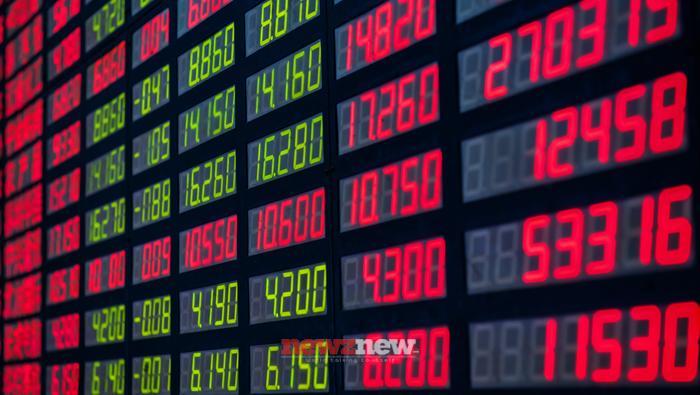Why Liquidity is Critical in the Forex Market: When people hear the word “liquidity”, they think it’s something that is related to money and financial institutions.
 However, in the business world, liquidity refers to the ability of an organization to convert its assets into cash, and it is a critical metric that everyone involved in today’s market and those interested in investing in an organization should be aware of.
However, in the business world, liquidity refers to the ability of an organization to convert its assets into cash, and it is a critical metric that everyone involved in today’s market and those interested in investing in an organization should be aware of.
Throughout this article, we will explore the importance of FX liquidity to the financial markets.
What is Liquidity?
In the FX market, liquidity is defined as the extent to which currency pairs are traded. A considerable aspect of liquidity is that it allows traders to enter and exit positions without having to worry about price volatility. When a currency pair is more liquid, there are more trades made, and buying or selling that pair becomes easier without the need to locate a counterparty.
As a broker, liquidity is crucial for providing tight spreads and executing trades as quickly as possible. A lack of liquidity may cause brokers to increase their spreads or delay the execution of trades. In this scenario, traders who rely on their broker to conduct their trading activities could suffer significant losses.
Before trading can be profitable, a liquid market is one of the requirements that must be met. In order to be perceived as liquid, a market must have an adequate number of traders in order to allow transactions to be executed rapidly and at prices that are close to the true market value. The liquidity scarcity in the market can make it quite complicated to buy or sell assets without significantly losing money. The importance of liquidity for traders can be attributed to this reason. In the absence of it, they wouldn’t be able to make any money.
How Can Liquidity Be Measured?
Among the many ways to measure liquidity, the bid-ask spread is one of the most common. The bid-ask spread is the difference in price between the highest and lowest price at which someone will buy or sell a security. Securities with a smaller spread are perceived as to be more liquid.
Volume is another way in which to measure the Forex market liquidity. A volume is an indication of how many trades have been executed in a given period of time. Therefore, liquidity of a security is determined by the number of trades made.
Price volatility is another method of measuring liquidity. In financial terms, price volatility refers to the degree to which a security’s price fluctuates over the course of time. Liquidity is inversely proportional to the volatility of a security.
An evaluation of the liquidity of security should include consideration of all three of these factors.
What Are Some Factors That Impact Liquidity?
The following are some of the most common factors that can affect liquidity:
- Market size: The greater the number of traders in a market, the greater its liquidity as a result of the greater number of transactions that can be conducted between them.
- Activity level: Whenever there is a higher level of activity, the market is perceived as to be more liquid. The reason for this is that the number of trades is increasing, as well as the number of purchasers and sellers interested in buying or selling.
- Market participants number: Market liquidity is measured by the number of traders trading on a particular market. The reason for this is that there are a greater number of trades that can be executed.
- Security type: Liquidity varies from one security to another. The liquidity of stocks is generally greater than that of bonds, for example. Due to the fact that stocks are typically more popular than bonds, buyers and sellers are more likely to be interested in stocks.
The Sources of Liquidity for Forex Brokers
Unlike other markets, the FX market is decentralized, meaning that trades are not conducted on a central exchange. As an alternative, trading takes place over the counter (OTC) between two parties. Thus, Forex brokers provide traders with liquidity on the market, which is one of their major roles.
Those who provide FX liquidity solutions to brokers are called liquidity providers. Brokers execute trades with the help of large banks and financial institutions known as LPs.
LPs of Tier 1 are perceived as to be the most important players in the FX market. JP Morgan, Goldman Sachs, Citigroup, and HSBC are among the largest and most influential banks in the world.
The role of these banks in the market is crucial. They provide capital to brokers in order for them to execute trades. To compensate the broker for the liquidity, they charge a small fee. As a result of this fee, the trader receives a spread.
The Tier 1 LPs are not accessible to retail or individual traders. Due to the incredibly high minimum trade size required to access their liquidity, most retail traders cannot afford to access their liquidity. Since they are unable to provide themselves with the necessary liquidity for trading, they are forced to rely on brokers for assistance.
Selecting a Liquidity Provider for Forex Broker
Today the market offers an enormous choice of different providers of liquidity. The prices provided by some companies are better than those provided by others. The following factors should be viewed when choosing a liquidity provider:
- Reputation: There is a great deal of importance attached to the reputation of the LP. To ensure that you are using a reliable and affordable service provider, you should ensure that you are using a reputable provider.
- Price: Liquidity prices are also important. When you trade, you want to ensure that you receive the best price possible.
- Speed: Also, it is important to consider the speed of execution. To ensure that your trade is executed effectively and efficiently, you need to make sure it is executed quickly.
- Size: The size of the LP is also an important consideration. Make sure they provide enough liquidity to meet your needs.
To conclude, these factors must be perceived as when choosing an LP for your broker. If you choose the wrong provider, you may lose money in terms of price and execution, so it is imperative that you choose an established and reasonably priced provider.
Final Thoughts
To summarize all the said above, it should be emphasized that liquidity is a factor that must be taken into consideration when trading in the foreign exchange market. You should be aware of the various variables that contribute to liquidity when choosing FX liquidity services, as this will be able to assist you in making a more informed decision. Due to the fact that choosing the wrong service can cost you money, it is important to hire one that has a good reputation and offers reasonable fees.






